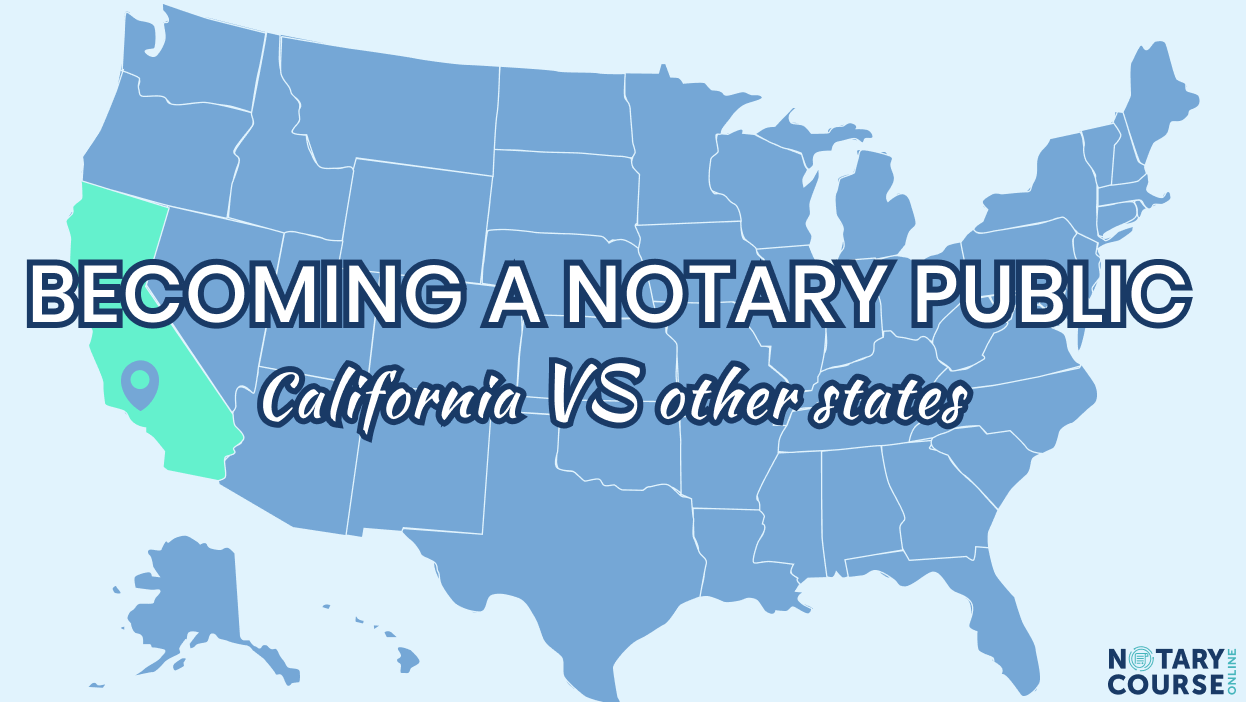California
Blog
Understanding State Notary Requirements: Laws and Regulations

-
by Carin Guertin
- August 29, 2025
Understanding State-Specific Notary Requirements
Becoming a notary public is a valuable step for many individuals who want to serve their communities by providing official witness and verification services. However, one of the most important things to understand before embarking on your notary journey is that state notary requirements vary significantly across the United States. Each state has its own unique set of laws, regulations, and procedures that govern the appointment, duties, and conduct of notaries.
Whether you are a new applicant or a renewing notary, familiarizing yourself with your state’s specific rules is crucial for compliance and successful commissioning. This guide provides an overview of state notary requirements, highlighting key differences and what you need to know to stay informed and prepared.
What Are State Notary Requirements?
At their core, state notary requirements are the legal criteria and procedures established by each state’s government to regulate the appointment and practice of notaries public. These requirements cover a wide range of areas, including:
- Eligibility criteria for becoming a notary
- Application and commissioning processes
- Required education or training
- Exam or testing requirements
- Bonding and insurance mandates
- Recordkeeping and journal duties
- Permitted notarial acts and procedures
- Renewal policies and continuing education
Because the role of a notary involves the authentication of a signers’ identity and signature on important documents, these requirements are designed to ensure integrity, competence, and public trust.
Variations in State Notary Laws
Eligibility and Appointment
Most states require notary applicants to be residents of the state, at least 18 years old, and have no felony convictions. The appointment process may involve submitting an application to the Secretary of State or other governing body, paying a fee, and passing a background check.
Education and Training
While many states do not mandate formal training, an increasing number are requiring prospective notaries to complete a state-approved course or pass a written exam. These requirements help ensure that notaries understand their legal duties and ethical responsibilities. States like California and Texas, for example, have mandatory education requirements and require applicants to pass a state notary exam.
Bonding and Insurance
Several states require notaries to obtain a surety bond as a financial guarantee against misconduct or negligence. Bond amounts vary by state and typically range from $5,000 to $15,000. Notaries are also encouraged or required in some states to purchase Errors and Omissions (E&O) insurance to protect themselves professionally.
Notarial Acts and Procedures
The types of notarial acts a notary may perform can differ by jurisdiction. Common acts include acknowledgments, jurats, oaths/affirmations, and certified copies. However, some states permit specialized acts such as signature witnessing or protests of negotiable instruments.
Recordkeeping
Maintaining a notary journal is mandatory in many states such as California and strongly recommended in others. Journals record the details of each notarization, including date, type of act, signer’s information, and identification presented. This documentation is vital if notarizations are ever questioned legally.
Renewals and Continuing Education
Most notary commissions last 4 years but this can vary. Renewing a commission typically requires reapplying, paying a renewal fee, and sometimes completing additional training or retesting. Keeping up with state notary requirements updates and continuing education is important to maintain your notary status.
Why Understanding Your State’s Notary Regulations Matters
Ignoring or misunderstanding your state’s specific rules can lead to mistakes that jeopardize the validity of notarizations, legal liability, or even revocation of your commission. Proper adherence to state notary requirements ensures:
- Legally valid notarizations that stand up in court
- Protection against accusations of fraud or misconduct
- Compliance with evolving laws and best practices
- Confidence in serving clients accurately and professionally
How to Find Your State’s Notary Requirements
The best way to understand your state’s requirements is to consult the official state authority responsible for notaries—usually the Secretary of State’s office or the state commissioning agency. You can:
- Visit your state government’s official website
- Download the notary public handbook or manual
- Enroll in a state-approved notary training course
- Contact state notary commissions for direct assistance
For comprehensive online resources and courses tailored to each state’s regulations, visit NotaryCourseOnline.com.
Summary of Key Differences Across Selected States
| State | Bond Required | Exam Required | Training Required | Term Length | Recordkeeping Required |
| California | Yes ($15,000) | Yes | Yes | 4 years | Yes |
| Texas | Yes ($10,000) | No | Yes | 4 years | Yes |
| Florida | Yes
($7,500) |
No | Yes (1st time only) | 4 years | No (recommended) |
| New York | No | Yes | No | 4 years | Yes |
| Illinois | Yes ($5,000 – $30,000) | Yes | Yes | 4 years | Yes |
Note: Requirements can change. Always verify with official state resources.
Final Thoughts
The role of a notary public carries significant responsibility and adhering to your state notary requirements is essential for legal compliance and professional integrity. By understanding the differences in state laws, staying current with updates, and completing necessary training, you can confidently perform your duties and serve your community.
For detailed information and state-specific training, visit NotaryCourseOnline.com and take the next step toward becoming a knowledgeable, compliant notary public.
FAQs on State Notary Requirements
- Can I be a notary in more than one state?
Yes, but you must meet the specific state notary requirements for each state separately, including residency, application, and bonding rules.
- Are there universal notary laws across the U.S.?
No, each state governs its own notary laws, so regulations vary widely.
- Do I need to retake a notary exam when renewing?
It depends on your state. Some require retesting or refresher courses, others do not.
- How can I stay updated on changes in notary laws?
Subscribe to newsletters from your state’s commissioning authority or professional notary organizations.
- Where can I find state-specific notary training?
NotaryCourseOnline.com offers courses tailored to state-specific regulations.






 Congratulations!
Congratulations!